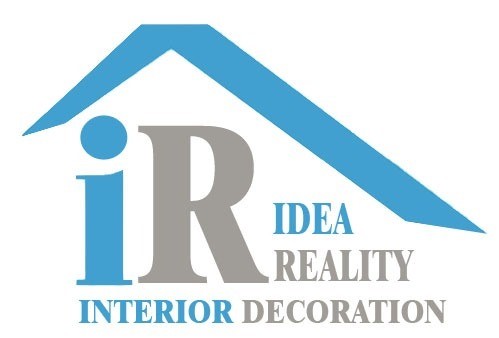Dubai’s reputation as a global hub for business, tourism, and retail has led to an increasing demand for flexible commercial spaces. From kiosks inside luxury malls to pop-up cabins at exhibitions and temporary site offices on construction projects, these structures offer businesses agility and cost efficiency.
However, unlike permanent buildings, temporary structures still require official approval. The city’s authorities, including the Dubai Municipality and the Dubai Development Authority (DDA), enforce strict checks to ensure that safety, compliance, and aesthetics are maintained. This blog provides a comprehensive guide to understanding temporary structure approval in Dubai, the steps involved, and how IR Interior can help you navigate the process seamlessly.
What Are Temporary Structures?
Temporary structures are any buildings or installations set up for a limited period of time rather than as permanent fixtures. While their lifespan is shorter, approvals are mandatory because they can still impact safety, traffic flow, and urban planning.
In Dubai, the definition of temporary structures covers a wide range of installations, including:
- Small-scale retail kiosks in malls or public spaces
- Portable cabins for offices, storage, or site use
- Exhibition booths and pop-up stores at trade shows
- Outdoor stages, tents, and event installations
- Temporary F&B outlets like coffee kiosks or food stalls
The key factor that makes them “temporary” is their limited duration of use, which can range from a few weeks to several months, depending on the permit.
Common Examples of Temporary Structures in Dubai
Businesses across industries use temporary structures for diverse purposes. Some of the most frequent approvals requested include:
- Retail Kiosks: Popular in shopping malls and public spaces, kiosks allow brands to test markets, promote products, or run seasonal campaigns. To operate legally, businesses need a Dubai kiosk permit and a mall installation NOC.
- Pop-up Cabins: Portable cabins are widely used as temporary offices, ticket counters, or service points. Event companies and real estate developers often request pop-up cabin approvals for short-term projects.
- Construction Site Cabins: Contractors frequently install cabins to serve as on-site offices or worker accommodations. These require approvals tied to the main Dubai construction permits of the project.
- Exhibition & Event Installations: Stages, stands, and temporary pavilions used at trade shows or cultural events also require permits to meet structural safety and fire compliance rules.
- Food & Beverage Units: Temporary F&B stalls, whether in festivals or open-air venues, must follow both health regulations and construction safety approvals.
Required Documents for Approval
Applying for a temporary structure permit involves preparing a clear and complete set of documents. Missing paperwork is one of the most common causes of approval delays. Typically, authorities require:
- Valid trade license copy of the applicant/company
- Layout drawings with clear measurements and design details
- Structural safety certificates confirming the stability of the unit
- Fire safety approval (for kiosks, cabins, and event installations)
- Electrical compliance certificate for wiring and connections
- NOC (No Objection Certificate) from the landlord or mall management (if applicable)
- Completed application form submitted to Dubai Municipality/DDA
For businesses working inside malls, the mall installation NOC is critical before applying for municipal permits.
DDA / Municipality Approval Process
The exact process varies depending on whether the application goes through the Dubai Municipality or the Dubai Development Authority (DDA). However, the overall steps are generally as follows:
- Application Submission: Businesses or consultants prepare and submit all required documents along with the structural and fire safety certificates.
- Authority Review: Engineers from the Municipality/DDA review compliance with safety, accessibility, and zoning requirements.
- Inspection (if required): In cases where cabins or larger structures are used, an on-site inspection may be conducted.
- NOC Requirements: For mall-based kiosks, the mall operator must issue an NOC before final approval.
- Permit Issuance: Once approved, a temporary permit is granted for a fixed period (usually weeks to six months).
Working with experienced consultants like IR Interior can help reduce back-and-forth with authorities and ensure smooth approval. Learn more about how we assist businesses with Dubai construction permits.
Compliance and Safety Guidelines
Dubai has a reputation for its strict regulatory framework. Even for temporary structures, compliance with safety and construction regulations is non-negotiable. Authorities focus on:
- Fire Safety: Units must include fire extinguishers, non-flammable materials, and safe electrical systems.
- Structural Stability: The kiosk or cabin must withstand environmental stress like wind, load, and vibration.
- Accessibility: Placement of kiosks and booths must not block exits, pathways, or emergency access routes.
- Health Standards: F&B kiosks must comply with Dubai Municipality health and hygiene requirements.
You can review the city’s official Dubai construction regulations for complete guidelines.
FAQs on Temporary Structure Approvals
Is approval needed for kiosks?
Yes. Whether inside a mall or outdoor public space, kiosks require permits from Dubai Municipality or the relevant mall authority.
How long is the permit valid?
Permits for temporary structures are usually valid for the event or project duration. Depending on the case, validity ranges from a few weeks to up to six months.
Can I move it once approved?
No. Permits are location-specific. If you want to move the kiosk or cabin, a fresh application must be made for the new site.
What safety checks apply?
Authorities verify fire safety systems, structural strength, and compliance with building codes before issuing approvals.
Conclusion
Securing temporary structure approval in Dubai is not just a legal formality, it’s an essential safeguard to ensure public safety and regulatory compliance. Whether you are setting up a kiosk in a mall, installing a pop-up cabin for an exhibition, or establishing a temporary office on a construction site, approvals are mandatory.
At IR Interior, we specialize in handling the documentation, authority liaison, and technical compliance required for approvals. With our expertise, your business can set up temporary structures quickly, confidently, and legally, without the delays and complications that often come with the process.

